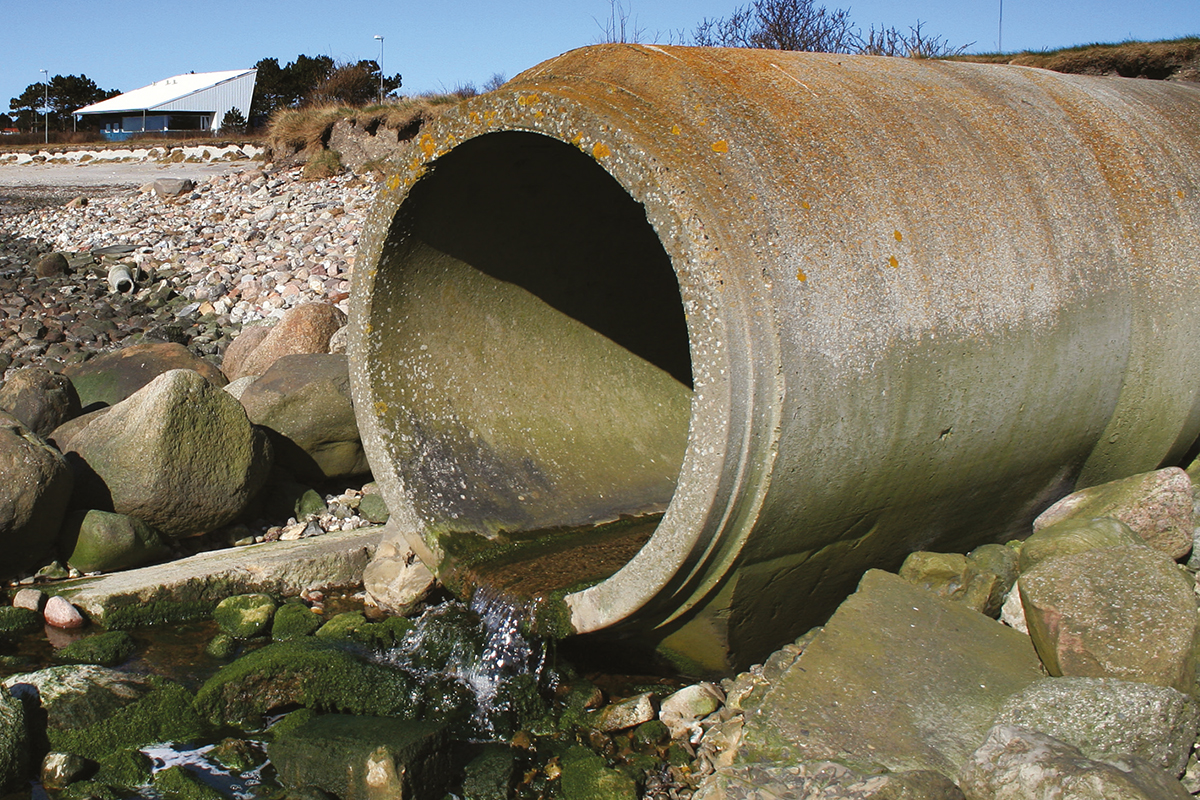
As if the global environment didn’t have enough on its plate with climate change, the UK’s rivers, beaches and waterways are under a deluge of untreated, and potentially fatal, raw sewage. By Alan Wares
What is happening?
During the two years of 2021 and 2022, the privatised water companies discharged raw sewage in to the UK’s rivers and beaches for a combined total of 4.4 million hours. That’s the equivalent of one outfall pipe discharging constantly since the year 1772.
This figure derives from all water pumping outlets which have a monitoring system. Hundreds out of the 15,000 outlets have no monitoring system, including along the Suffolk Coast, so that figure is likely to be significantly higher.
As a result of these discharges, harmful bacteria enter the delicate eco-systems of Britain’s rivers, streams and chalk streams, disrupting or destroying the natural balance with in the water courses. On the beaches, these bacteria will be present when families, swimmers and holidaymakers go for a swim within a certain radius of the outfall pipe, leading to a high risk of catching harmful and potentially fatal diseases.
Under UK law, the water companies are allowed to discharge a limited amount of raw sewage into the environment in ‘exceptional circumstances’ to avoid a back up of rainwater re-entering the water supply system. The definition of ‘extreme circumstances’ has, in recent years, been corrupted to such an extent by the water companies that what they have been doing is illegal. On a grand and revolting scale.
The release of raw sewage fell in 2022 compared to the previous year, though many are pointing at the lower than average rainfall (90% of the historical average) the UK had during the year. Now, all water companies will need to monitor their discharges, and present the data in real-time. This is a government instruction which must be in place across the entire industry by the end of 2023.
The claim made by companies that they must discharge has merit when, for instance, after a heavy rainstorm, where unusually high amounts of rainfall in a short space of time, causes the under-invested (more of that presently) sewage system to be over-run. Indeed, it is perfectly legal for them to do so.
However, that claim doesn’t hold water – literally and figuratively – for what has really been going on. They have been discharging at time of low rain, at times of official drought; Southern Water discharged during Summer 2020 after seven weeks of no rain in Sussex.
How is this allowed to happen?
Like it or not, there is a huge political angle to this. When it was revealed in reports during the 1980s that Britain’s network of sewage infrastructure needed billions of pounds of maintenance, the Government claimed it could not afford to carry it out, and so privatised the water industry, with promises of bonuses management and shareholders for efficient work.
Unfortunately, like much of the legislation surrounding the privatisation programme of the nationalised utilities of the 1980s and 1990s, shareholders were put at the front of the queue for finance and resources, ahead of services and appropriate work. Therefore, the law is stacked in favour of the privatised corporations.
So what’s happening is nothing new. A leaked report from 2022 found that the Environment Agency knew at least as far back as 2012 that the water companies were illegally dumping raw sewage in to the waterways. Here we get to the nub of the matter.
There is a clear ‘light touch’ approach’ from the Government departments and official watchdog ‘Ofwat’ regarding compliance. The findings from the 2012 report shows that self-regulation was preferable, as the same time as thousands of jobs were cut from monitoring, staffing and regulation.
In short, the Environment Agency, a non-departmental government body within the Department for Environment, Food & Rural Affairs (Defra), knew of the illegal discharges, had several opportunities to do something about it, and chose not to.
When Defra finally prosecuted the water companies for consistent illegal discharges, the total fines since 2015 have come to £141 million – and most of those were from one prosecution, landing Southern Water a £90 million fine. This means it’s actually cheaper for the water companies to pay the fines than to repair the sewage systems.
It is effectively, little more than a fee they are prepared to pay in comparison to any legal obligations they may face. In November 2022, the government announced its intention to ring-fence the proceeds of all fines back into paying towards environmental improvements.
However, the government is also ordering the companies to invest £56 billion to carry out the work they were supposed to do 30 years ago. Even at the fastest working rate, this project will take over 25 years – the year 2048 – to complete, and costs will almost certainly rise hugely in that time.
Campaigners are launching a judicial review against the government plans, claiming that the projects lack immediacy, and don’t cover the problematic outfall pipes currently discharging into the rivers and seas.
You can see why, to the water industry collectively, a £141 million fine looks so appetising in the face of a £56 billion compulsory repair bill. For their part, the water companies are warning that if they are obliged to carry out this work at their own expense, water bills will rise sharply. This will not sit well with anyone. Since privatisation in 1989, water companies have handed out an eye-watering £72 billion in bonuses and dividends, mostly at the expense of the repair work and investment. They were given government assistance, and they blew it. Collectively, the water companies in England made £2.8 billion profit in 2021, in the face of record water and sewage pipe leakages, yet are £56.2 billion in debt.
Farming
Meanwhile, the water companies are pointing the finger at the farming industry which does indeed have its part to play in keeping the water supply clean. New rules were brought in by the Government in 2018 regarding the treatment of waste water. However, these rules have remained completely unenforced.
A total of 391 breaches were identified during the financial year ending March 31st 2022, up from 106 breaches officially recorded in the previous year, according to data obtained by the investigative journalism organisation Point Source.
Since the rules were introduced, the Environment Agency has not issued any fines nor prosecuted anyone under the legislation. The increasing number of documented offences and the absence of a credible threat of enforcement of the law demonstrates a clear failure by the government to protect the country’s most fragile ecosystems, according to conservation organisations.
Into the future
In the end, it has now come down to The Times newspaper, which recently launched its ‘Clean It Up’ campaign, calling for faster investment and tougher regulations and punishment to repeat offenders. Additionally, comedian Paul Whitehouse and former Undertones frontman Feargal Sharkey are spear-heading the campaign against the ongoing behaviour.
This time, as environmental protests go, this one has some traction with the general public who, for the most part, only look upon the water companies’ greed as the prime reason for the pollution.
For its part, the Government is seeking to bring in new legislation which may or may not resolve the problem. The perverse aspect of this is that the appropriate legislation already exists, and has done so for decades, and yet the appropriate agencies don’t seek to use the judicial routes.
Former Environment Secretary, Ranil Jayawardena, announced in October that Defra would raise the levy against water companies for pollution, from £250,000 to £250 million. However, current Secretary of State for Defra – a Government department which could and should be doing so much more – Therese Coffey has abandoned those plans, citing that they were ‘disproportionate’.
One wonders how fast the water companies would act if the individual CEOs and company Chairs were to be held financially and legally accountable…?
At every turn, the public, wildlife, and the environment have been ignored. The principal raison d’être behind water privatisation – that the private sector paid for the repairs to the UK water supply and drainage system, with all its appropriate rewards – was little more than an outfall pipe dream, and has long been flushed away.
What are the effects of the pollution?
On a human level, the UK’s water users are as likely to become ill from seawater as they were in the 1990s, with conditions ranging from sore throats and upset stomachs to serious illnesses like gastroenteritis, hepatitis and E. coli. According to the European Centre for Environment and Human Health, people who swim in UK waters regularly are three times more likely to have antibiotic-resistant E. coli in their guts.
Every single river In England and Wales is now affected by the polluted discharges; none are free of problems, and only 14% meet ‘good’ ecological status. The delicate eco-systems, fragile in the first place, are being torn asunder, with ecology experts naming the worst affected rivers as ‘dead’.
The Environmental Audit Committee wrote in January 2022, “The build-up of high levels of nutrients, such as phosphorus and nitrogen, from sewage and animal waste, is choking rivers with algal blooms that reduce oxygen levels, suffocating fish, plants and invertebrates.
Along with the stresses of plastic and synthetic chemical pollution and climate change, this is creating multiple pressures undermining the health and resilience of freshwater ecosystems. As a result of pollution in our rivers, freshwater species such as salmon are at risk.”





